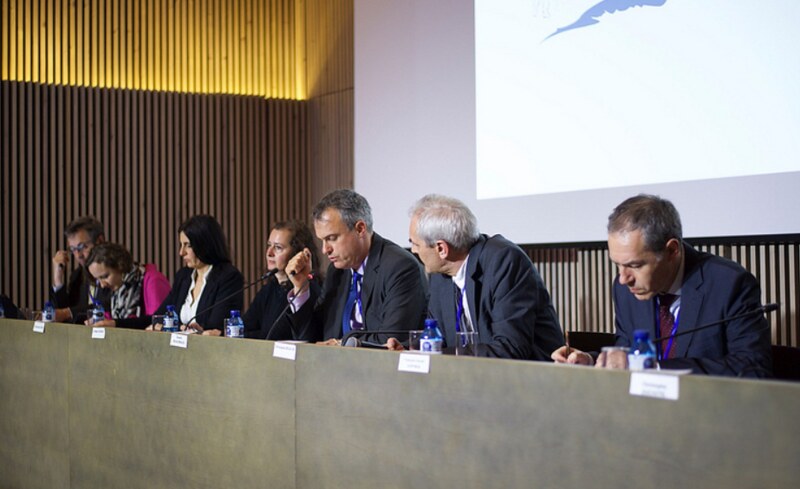Fourth Mediterranean Forest Week (4MFW) - Barcelona, Spain
Improving livelihoods: the role of Mediterranean forest value chains in a green economy
Forests and other woodlands are an integral part of Mediterranean landscapes. They are a source of energy, water, food, tourism and many other goods and services, as well as other sources of income. The value chains of several goods and services provided by these ecosystems play a key role in improving the quality of life of people in the Mediterranean region.
Even if global changes (e.g. changes in societies, lifestyles and climate) underway in the Mediterranean region have a negative impact on these ecosystems (e.g. causing forest degradation, loss of biodiversity, increased fire hazards, water scarcity and desertification), forest goods and services should be considered as a relevant opportunity to promote the development of a green economy based on sustainable forest management in the Mediterranean region. In order to meet these challenges:
- Political and administrative authorities at national, regional and local levels, as well as stakeholders and the civil society as a whole, have to adapt their strategies and regulatory frameworks to promote sustainable value chains that contribute to employment conception and the development of a green economy in the Mediterranean.
- Forest scientists and managers are expected to develop and adapt silvicultural practices, considering the diversity and use of forest goods and services as well as the influence of socioeconomic and climate changes, in order to improve the quality of life of Mediterranean populations. After the success of the previous Mediterranean Forest Weeks, the Spanish authorities welcome this fourth edition in Barcelona focusing on the issue of “Improving livelihoods: the role of Mediterranean forest value chains in a green economy”.
Objectives
- strengthen exchanges and synergies between stakeholders involved in the integrated management of Mediterranean forests and other woodlands;
- follow-up with the Tlemcen Declaration and implement the Strategic Framework on Mediterranean Forests (SFMF) – policy orientations for integrated management of forest ecosystems in the Mediterranean landscapes;
- promote innovation, cross-sectoral cooperation and the development of the economy (including green economy and bioeconomy) to increase resilience of forested ecosystems;
- involve key value chain stakeholders of goods and services provided by Mediterranean forest ecosystems (e.g. from the agriculture, water, energy, biodiversity conservation and tourism sectors) in order to incorporate their expectations and cross-sectoral issues into National Forest Programmes;
- strengthen the link between science and decision-makers to establish a common vision of the future of development and management of Mediterranean forests and woodlands; and
- prepare a presentation of the results of the 4MFW for the World Forestry Congress to be held in Durban in September 2015.

